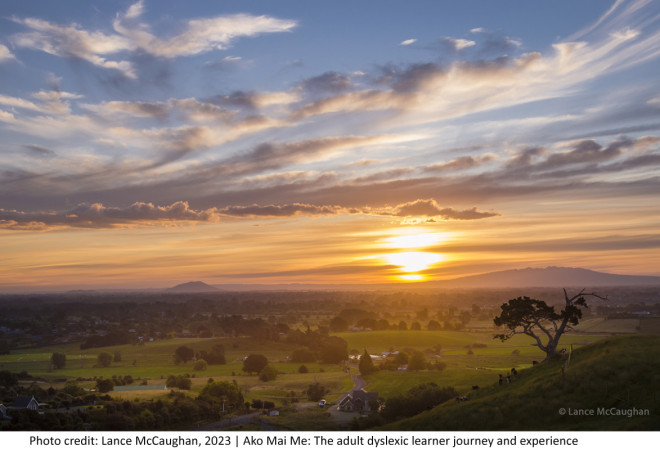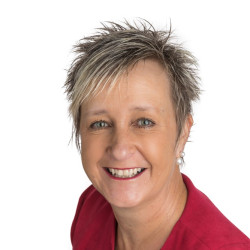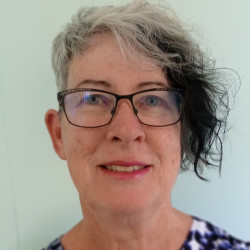
Ako Mai Me: The adult dyslexic learner journey and experience
Status
Completed: 28 February 2024
Project Details
This project explored the educational and life experiences of dyslexic learners in Aotearoa New Zealand as they have navigated compulsory school and tertiary studies. It sought to address a national and global research gap by emphasising the perspectives of dyslexic individuals and their families.
Ako mai me means - teach me so that I can learn.
The research report and accompanying guideline documents will help educators to know more about the experiences of those living with dyslexia, ensure educators are better informed about how to teach learners with dyslexia, and provide learners with dyslexia access to stories about the experiences of others like them.
Aims
To uncover the challenges and successes experienced by dyslexic learners in post-secondary/tertiary contexts.
Methodology
Semi-structured interviews with a cohort of dyslexic individuals and narrative analysis methods were used to gather the participants’ personal experiences and perspectives.
Recurring themes, patterns, and insights that emerged from the qualitative data were identified.
Team

Dr Lesley Petersen
Project Co-lead
Independent Researcher
Dr Linda Rowan
Project Co-lead
Independent ResearcherStatus
Funding
$30,000.00 (excl GST)
Key Themes
In analysing the stories of the participants, five key themes emerged that encapsulate their experiences and insights within the educational landscape.
Recognition
Recognition is pivotal for dyslexic individuals throughout their personal and educational journeys. Dyslexia can be identified early by educators or psychologists, or through informal acknowledgment by teachers or parents. Recognition, at any life stage, provides them with the language to articulate their challenges and strengths, influencing life choices, self-esteem, and opportunities.
In the educational environment, recognition and positive reinforcement can strengthen motivation and resilience. Conversely, the lack of recognition can lead to feelings of exclusion and disengagement in learning environments.
Reconciliation
Reconciliation involves dyslexic individuals acknowledging and harmonising their dyslexia with their life and learning experiences. Family and peer support are instrumental in this process. Recognising and embracing one’s unique learning style is essential, as is the desire for personalised learning.
Resourcefulness
Dyslexic individuals often exhibit resourcefulness, developing strategies to navigate challenges they face throughout their lives by harnessing their unique skills. The participants’ narratives accentuate the transformation of perceived weaknesses into strengths and emphasise the importance of creativity in their journeys.
Resilience
Resilience is the capacity of dyslexic individuals to recover from challenges and keep going. Central to this is recognising their personal strengths and fostering self-determination. Resilience requires persistence, self advocacy, and challenging unhelpful systems.
Reflection
The participants’ reflections provided insights into their experiences with dyslexia across various educational levels. Their stories emphasise the importance of determination, effort, and the role of supportive educators in their success.
Key Recommendations
- Provide specialised training for teachers and educators on dyslexia, equipping them with strategies to support dyslexic learners effectively, such as the use of alternative assessment methods that cater to the strengths of the individual dyslexic learner.
- Establish peer support groups where dyslexic learners can share experiences, strategies, and advocate collectively.
- In partnership with the participants of this study, create and evaluate a model that:
– Integrates dyslexic mentors to guide adult dyslexic learners.
– Focuses on fostering self-advocacy within the Aotearoa tertiary system
The project has the potential to influence policy and practice within the educational landscape of Aotearoa New Zealand. By amplifying the voices of dyslexic learners, it informs policymakers, educators, and stakeholders about their specific needs, leading to the development of more inclusive and supportive policies and practices within tertiary education institutions.
Ultimately, this promotes the equitable access and success of dyslexic learners in the educational system.
This research explored the educational and life experiences of adult dyslexic learners in Aotearoa New Zealand. The report will help educators to know more about the experiences of those living with dyslexia, ensure educators are better informed about how to teach learners with dyslexia, and provide learners with dyslexia access to stories about the experiences of others like them.
- 28 February 2024
This resource offers tips and strategies for educators of adult dyslexic learners to assist them to navigate their educational journeys.
- 28 February 2024
This resource offers tips and strategies for adult dyslexic learners to assist them to navigate their educational journeys.
- 28 February 2024
This Dyslexia-Friendly Style Guide can be used as a reference when creating print and digital resources that are easy to read and accessible to dyslexic people or those needing literacy support.
- 11 September 2023
Resource collection
Dyslexia - Adult Literacy and Numeracy Resources
Information and resources related to teaching adults with dyslexia. Covers topics such as what dyslexia is, how it can be identified, how it can affect people and what support can be put in place by educators.